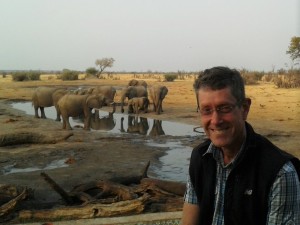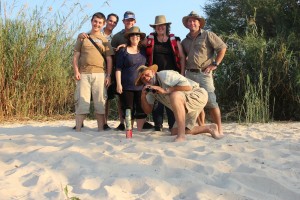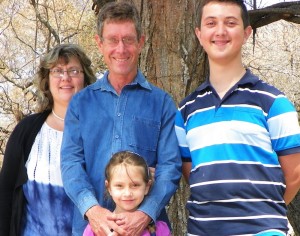 “One Mississippi, two Mississippi!” My boss is counting off the actual elapsed time – two seconds – which a professional guide would have to raise and aim an already-loaded heavy-caliber rifle at a lion charging from, say, 20 meters. It’s too tight, and indeed, in this case, the lion killed a respected colleague.
“One Mississippi, two Mississippi!” My boss is counting off the actual elapsed time – two seconds – which a professional guide would have to raise and aim an already-loaded heavy-caliber rifle at a lion charging from, say, 20 meters. It’s too tight, and indeed, in this case, the lion killed a respected colleague.
I have worked most of my life in tourism in Africa. If my boss ever thought about my link with Mississippi, he is not thinking about it now. But I am jolted by both his practical illustration of the incident and the use of the name ‘Mississippi.’ It’s a thread that weaves in and out of my history.
Indeed, there are moments in an individual’s life when time stands still, and we are caught in slack-jawed surprise until realization kicks in. There are moments in history when the whole world stands still and watches the course of history change before their eyes. Pearl Harbor for example.
On 9/11 2001, I was with University of Mississippi journalism professor Will Norton in Harare, Zimbabwe, Africa. He could not have been further from his home base in the USA. I was at home, but not comprehending the tapestry of life that had brought us together at this time. Actually, I still do not understand that tapestry, but I am increasingly aware of the weaving of threads, which, on their own without meaning, taken together, create a picture, unique and beautiful to each individual.
I met Will when I travelled to the States to take a postgrad degree in journalism. My first degree was in English from the University of Zimbabwe. Avoiding teaching as a career, I still wanted to use my mother-tongue to hinge my career – and journalism seemed the path to follow. The USA led the world – by far – in the teaching of journalism at any level, so I spent many hours in the local university library and came up with a seemingly exhaustive list of programs stateside, and diligently wrote to each one of them.
I was floored when I received a reply in the mail from Jere Hoar of the graduate program at Ole Miss. Ole Miss valued the benefits of cultural exchange and offered an assistantship as bait. I was hooked. In my undergrad degree, we had studied the American novel – I had discovered Faulkner and focused on him in my classwork. Here was another of those threads in the tapestry of life, linking me as an individual with these two continents.
This was before email – how did we manage? – and there had been the usual delays in the intercontinental post. Within a short time I was on my way, and only just made the start of the school year. Looking back now, those first impressions of the nation, the people, the campus, were among the richest of my life, saturated in color and activity, weird accents and an immeasurable resource of Southern culture.
There was one small hitch in my great scheme – actually the elephant in the room that I was studiously ignoring. I had chosen to study journalism, but Zimbabwe, independent since 1980, had a rather limited free press. The new black government had merely inherited control of all the daily newspapers and the only radio and television broadcasting station from the previous white government, which it then wrapped its python-coils around ever more tightly.
I was young and cavalier and, in the meantime, really enjoying Ole Miss and the USA. Career choices could wait. But it was always clear to me that the ability to communicate well would benefit me in whatever path I followed through life. It was this skill that I had come to hone at Ole Miss, and, therefore, was News Reporting 271 the most important course I took? (I had no journalism credits in my first degree, and had to take undergrad courses to fill in the gaps in my progress toward a postgrad degree.)
The truth is that, like bricks in a building, or threads in a tapestry, every lecture, let alone every course, had its role to play in the finished item. I really enjoyed communications law, which left me with a sneaking suspicion that I had missed my vocation as a lawyer. I was privileged to take a writing class with Willie Morris – I remember his warmth and enthusiasm for life and was greatly encouraged by his response to my work. That was a major pillar established in my life, right there.
Will Norton taught me how to edit, and I still cringe when I write to him or for him – this article is a case in point – knowing that the pencil is always at work in his mind. Will also walked me through my thesis with inexhaustible patience, supporting me and shielding me from the internal and external forces that might bring surrender and defeat.
As well as writing and editing, at Ole Miss I learned to organize my thoughts, to be more clear thinking, analytical. I learned to take nothing new at face value, but to test it against already-proven criteria, most of all common sense. Ole Miss also crystallized the core values and principles such as integrity that have sustained me through life – however imperfectly I may have been able to realize those principles at various times.
But, despite having a degree in journalism, I have never worked full time in either print or broadcast journalism, apart from a brief stint as a sub-editor on an evening paper in Wales – useful to pay your way when travelling. I still, however, freelance as a sub-editor for a regional quarterly tabloid focused on tourism and conservation.
I well knew that, if I chose to return, live and work in the nation of my birth, this would be the case. Today, not much has changed from 30 years ago, in terms of a journalism career in Zimbabwe. There’s still only one government-owned broadcast station, providing stodgy propaganda, but, hey, now there are satellite dishes on the smallest of earthen walled, thatched huts, providing different fare. There are a couple of fiercely independent weeklies and a daily that is as hotly biased against the government as the government press is biased against the opposition. There are no ethics on either side in this fight, and it is not one in which I have ever wanted to be involved.
Instead, I’ve spent my time since Ole Miss in tourism. Africa’s wilderness and wildlife is the one resource it has of world-class standard that can be relatively easily accessed. Mineral and agricultural resources also abound, but developing them takes huge investment and the right economic policies. Tourism is somewhat less complicated. A healthy economy is not required – Cuba, anyone?
I’ve pretty much worked my way around Zimbabwe, privileged to live at most of the top tourist destinations at one time or another. Hwange National Park, home to 50,000 elephant; The Save (pronounced ‘Sarvay’) Valley Conservancy, which is an important black rhino sanctuary; Gonarezhou National Park, now part of a three nation transfrontier park project; Great Zimbabwe, the largest ancient ruin in Africa south of the Sahara; Victoria Falls, high on most tourist’s wish list. Now I live in Bulawayo, this nation’s second and most cultural city, packed with colonial and pre-colonial history, retaining much of its early architecture and atmosphere.
In 1978 I married Carey, whose family hails from the eastern highlands of the country. Our first child, David, was born in 1999, and his sister Joanna arrived in 2008. They attend elite private schools, to my chagrin, because I benefitted from a first-class, government education. After some noteworthy success in expanding education for the masses after independence, the education system today leaves much to be desired.
But the skills I learned at Ole Miss have been pivotal in furthering my career. Good communication, obviously, is a major asset in any organization. But I also strengthened the life skills of perseverance, effort, endeavor, which were not taught in any formal class, but which underpin progress at the tertiary education level, and thereafter in life itself. For all of this, I am deeply grateful to Ole Miss.
Lastly, I also thank Ole Miss for friendships that have survived the tests of time and distance: Will Norton; my room-mate Tom Grier from Detroit (long discussions and late nights recalled); the unstinting support from colleagues who prepared me well and finally sent me out into life beyond school.


